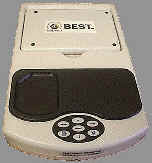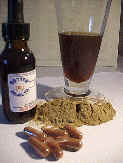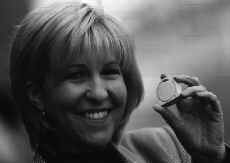| HOME
|
Osteoporosis Assessment The Osteoporosis Assessment is a test that assesses bone breakdown in the body, which would indicate that you are at risk of – or actually in the process of – developing osteoporosis. Osteoporosis is also known as thinning of the bones. It is caused by a loss of calcium, which makes the bones weaker and less resistant to damage. Many fractures in old age occur because the bones are not as strong as they should be, and to a certain extent this is a natural process that takes place over the years. Some people however have an accelerated rate of calcium loss from the bones, and this makes them particularly vulnerable. The Osteoporosis measures the rate of bone breakdown, which is associated with calcium loss, and thus gives us a good indication of what is actually happening to the bone at this time. Bone density tests will tell you if you already have osteoporosis, but does not give you an indication of what is likely to happen in the future. Who Should Have the Test?It would be particularly valuable for those at a higher risk of osteoporosis:
For fit and healthy people, over the age of 40, it could be argued that they should have the test every 2 years or so. For those with a family history or other risk factors for osteoporosis, then perhaps they should have the test repeated annually. How Is It DoneThe Osteoporosis Assessment is carried out by collecting a small sample of urine, which must be the second urine that you pass in the morning. A test kit is provided for you. A single sample is collected, and is then sent in the post. The sample is analysed in the laboratory, measuring the bone breakdown products in the urine. The results are available to us after around 14 – 21 days, and we usually arrange a follow-up appointment in a month to discuss your results. Alternatively results can be posted to you, or we can discuss them with you over the telephone. How Accurate are the Results and What Do They Mean?No test can be 100% accurate. This test is probably as accurate – if not more so – than many of the osteoporosis assessment methods available conventionally. At Better Health we have always approached new treatments, new tests and new therapies with an analytical, scientific approach – are they as good as they claim to be? Currently available conventional tests on osteoporosis are limited to bone density measurements, which – as discussed above – only tells us what has already happened. Consequently most conventional tests fail to tell you accurately whether you are at risk of osteoporosis or not. What Advice Do You Get?If the results are normal, then bone breakdown is occurring at a normal rate. A follow up test would be advisable in 12 - 24 months. If there is an accelerated rate of bone breakdown, then further tests may be advisable to try and establish why this is the case. There may be a deficiency in calcium, magnesium or other minerals or vitamins, and a vitamin and mineral assessment may be advised. There may also be a deficiency in oestrogen in the body, and a hormone test may be advised to determine if this is the case. Treatments advised by Better Health include various nutritional, herbal and homoeopathic medicines, and will depend very much on the results of the tests carried out. How Much Does it Cost?The current cost of the Osteoporosis Assessment is £80.A carriage charge will be additional for shipping to the laboratory. Further charges apply for any further consultations, tests or treatments, and these will be discussed with you fully as necessary. |
0800 980 3447 |





